Teacher Resources and Support Strategies for Overwhelmed Educators
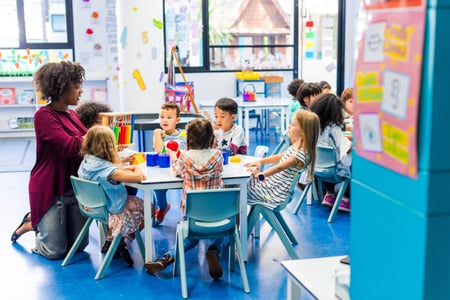
Check out our blog for social-emotional learning articles, news, and more!
By Carolyn Webster-Stratton Ph.D.
Nine accredited group leaders with extensive Incredible Years group experience came to Seattle from Rhode Island; Colorado;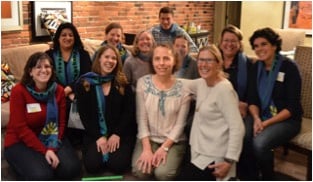 Pennsylvania; Kentucky; Canada; California; and New York for a 2-day peer coach training with IY Trainers Carolyn Webster-Stratton and Jamila Reid.
Pennsylvania; Kentucky; Canada; California; and New York for a 2-day peer coach training with IY Trainers Carolyn Webster-Stratton and Jamila Reid.
We are excited that they will be coaching new IY group leaders in their agencies and helping them to become accredited in Incredible Years Programs. They, too, will be working on their own accreditation as IY peer coaches by sending in DVDs of their coaching process.
See link about peer coaching http://incredibleyears.com/resources/coach/
Why are peer coaches needed?
Research has shown that traditional, brief, single shot, didactic training workshops with passive participation are ineffective in changing therapist behavior. Rather, longer, quality, active training workshops have been shown to lead to increased therapist proficiency and intervention adherence and fidelity. However, despite the fact that the 3-day Incredible Years workshops are based on a collaborative, experiential, and self-reflective approach that receive very positive evaluations, there is still a need for group leaders to have consultation and coaching post workshop training. Studies have shown that new learners of evidence-based programs are often are unsure of their themselves and question new techniques or strategies. We find that many new IY group leaders are uncertain about how to use the collaborative leadership process with groups, select appropriate vignettes for particular groups, and mediate vignettes to trigger active role play practices, reflection and problem-solving. In some ways the 3-day workshop is like learning to swim on dry land and starting to lead groups is like jumping into the water to practice actually swimming. These new swimmers need additional support (and floats) as they practice the new strokes.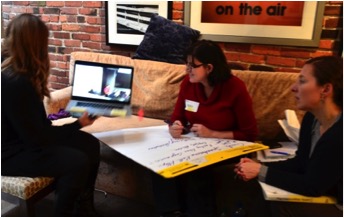
Learning something new starts with a “survival phase” before achieving a state where new knowledge and skills are consistently and successfully applied and adapted. Studies have found that combining ongoing coaching, video feedback and consultation to quality training workshops improves the adoption of innovation, retention of therapist/group leader proficiency and intervention delivery fidelity (Herschell, Kolko, Baumann, & Davis, 2010; Webster-Stratton, Reid, & Marsenich, 2014). If group leaders/therapists reach proficient levels in adherence/competence in delivery of the program and have adequate consultation, coaching and organizational support, it possible to achieve better outcomes with clients. If therapists/group leaders lack support, then it is unlikely clients will receive the benefits that were reported in the original research.
What is peer coaching?
Coaching is non-evaluative feedback based on observation. A peer coach is someone who is learner-centered and supportive, builds on 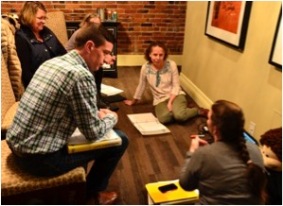 group leader’s strengths, observes and monitors their skills and interpersonal processes, prompts or models skills/thoughts and self-reflections according to group leader’s goals, sets up behavioral practices and promotes their use of strategic behavior plans, and encourages, praises and reinforces group leader steps in the right direction.
group leader’s strengths, observes and monitors their skills and interpersonal processes, prompts or models skills/thoughts and self-reflections according to group leader’s goals, sets up behavioral practices and promotes their use of strategic behavior plans, and encourages, praises and reinforces group leader steps in the right direction.
Key coach roles include: relationship building, assuring group leader evidence-based knowledge, assuring quality group leader methods and processes, promoting certification/accreditation and a supportive infrastructure.
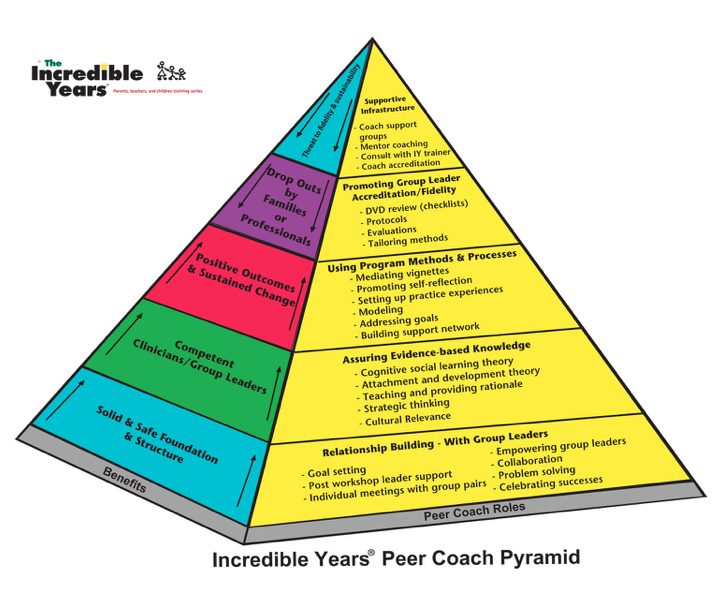
Herschell, A. D., Kolko, D. J., Baumann, B. L., & Davis, A. C. (2010). The role of therapist training in the implementation of psychosocial treatments: A review and critique with recommendations. Clinical Psychology Review, 30, 448-466.
Webster-Stratton, C., Reid, J., & Marsenich, L. (2014). Improving Therapist Fidelity During Evidence-Based Practice Implementation Psychiatric Services, 65(6), 789-795.





